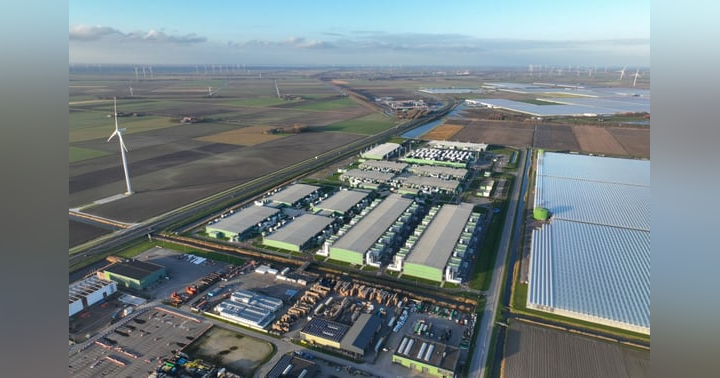Solar Panels in Great Britain: An Inefficient Investment

(image: Swindon Solar Farm - Science Museum Blog)
The new Prime Minister of Great Britain is advocating for a multi-billion-pound investment in solar panels. However, considering the country's unique weather patterns and economic landscape, this may not be the most prudent investment decision. Let's explore why solar panels may not be the best path forward for Britain's renewable energy future.
The Weather Factor
Britain isn't exactly known for its sunny skies. The country experiences a significant number of overcast days, which directly impacts the efficiency of solar panels. According to the World Bank Group's global analysis of solar potential, the UK ranks poorly, even lower than Germany, which is notorious for its cloudy weather.
- Sunlight Hours: London, for instance, receives only about 1,480 hours of sunlight per year compared to Los Angeles' 3,254 hours. That's less than half!
- Cloud Cover: Persistent cloud cover further diminishes the capacity of solar panels to generate electricity effectively.
The Seasonal Challenge
Winter months pose another challenge for solar energy production in Britain. The shorter days and lower sun angles mean that even the best solar panels will struggle to produce a meaningful amount of electricity.
Technical Limitations
- Reduced Sunlight: During winter, the UK experiences daylight for as little as 7-8 hours, leaving solar panels with minimal time to generate power.
- Low Solar Angles: The angle at which sunlight hits the panels during winter is less optimal, further reducing efficiency.
Economic and Environmental Implications
While the environmental benefits of renewable energy are evident, the economic ramifications of investing heavily in solar panels in Britain deserve scrutiny.
Cost-Benefit Analysis
- Installation Costs: Installing solar panels as part of a national initiative would require substantial upfront investment, straining public finances.
- Maintenance Costs: Solar panels require regular maintenance to function optimally, adding to the long-term financial burden.
- Return on Investment: Given the inefficiency due to weather and seasonal challenges, the ROI on solar panels in the UK is questionable.
Environmental Considerations
- Manufacturing Footprint: The production of solar panels involves significant energy consumption and raw materials, which could offset some of the environmental benefits.
- Suboptimal Performance: Inefficient solar panels generate less electricity, meaning more panels (and thus more resources) are needed to meet energy demands.
Alternative Renewable Energy Sources
Given the inefficiencies of solar panels in Britain, other renewable energy sources might offer better returns.
- Wind Energy: The UK has a strong wind resource, particularly offshore, which could be harnessed more effectively than solar power.
- Nuclear Power: Nuclear energy presents a reliable, low-carbon alternative. Modern nuclear reactors are safer and more efficient, providing a steady supply of energy regardless of weather conditions.
Conclusion
While the push for solar panels aligns with the broader goal of transitioning to renewable energy, it may not be the most efficient or economically sound choice for Great Britain. The country's unique weather patterns and economic landscape make solar power a less viable option. A diversified approach that includes wind and nuclear power might better serve the nation's energy needs while ensuring economic and environmental sustainability.
If the Prime Minister truly has the best interests of British citizens at heart, a more balanced investment in various renewable energy sources, rather than a heavy reliance on solar panels alone, would be a wiser path forward.










